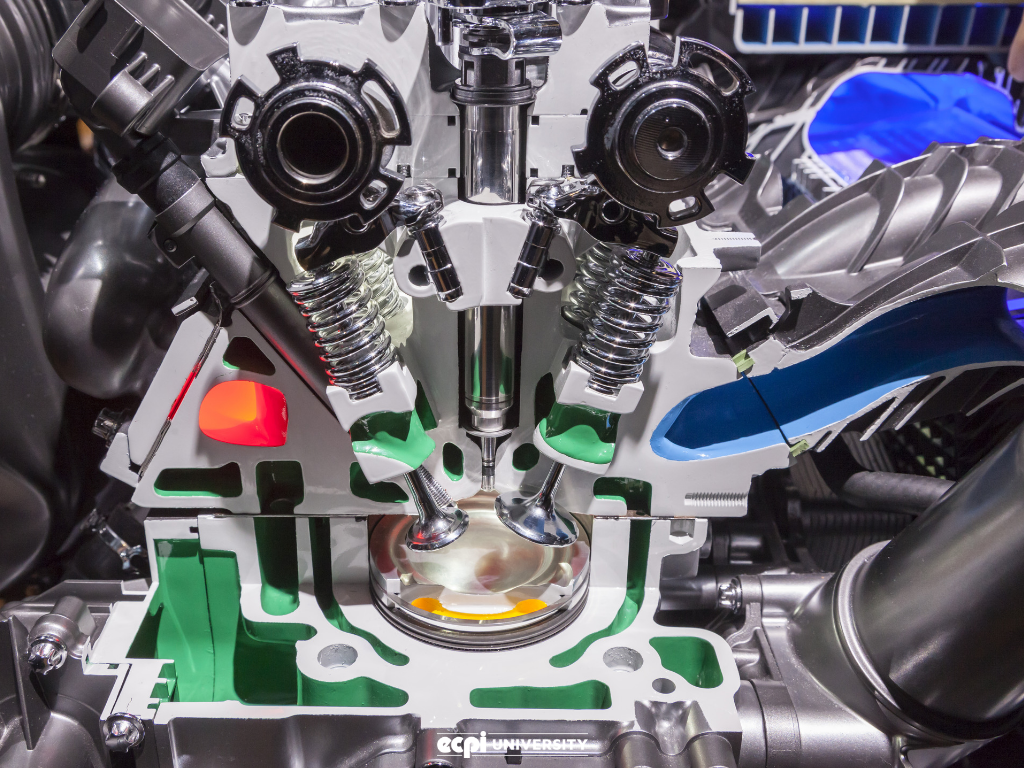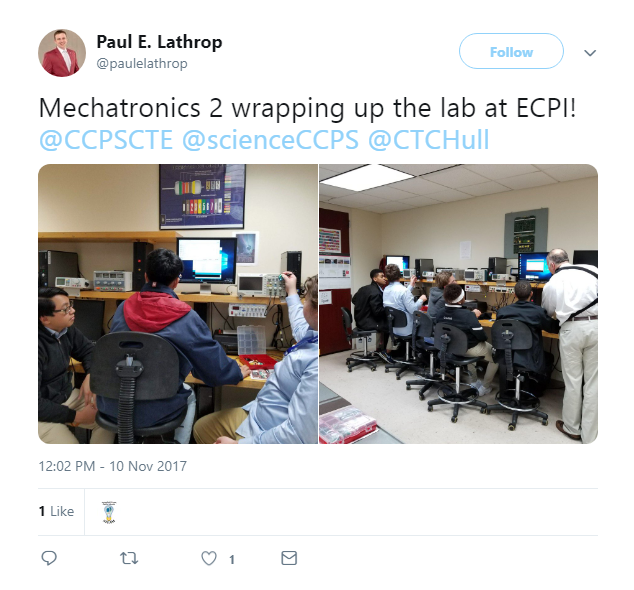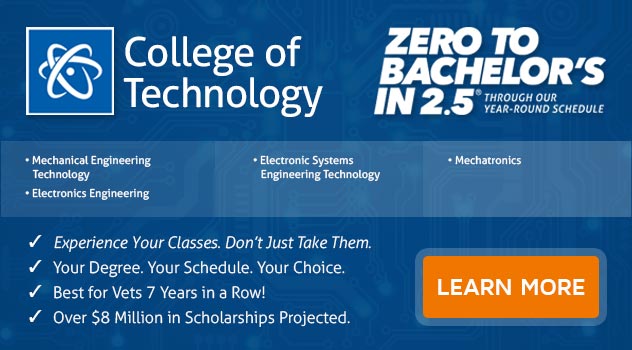Mechatronics Degree Online: What Exactly is ESET?
Mechatronics is a multidisciplinary engineering field that embraces the sciences of mechanical engineering technology, electronics, robotics, telecommunications engineering, computer engineering, control engineering and systems engineering. This hybrid discipline offers a variety of workplaces, positions, and specialties. But you won't find yourself working as a mechatronics technician without formal education in the field.
In their day jobs, mechatronics technicians may be found designing, installing, maintaining, and repairing systems, components, or processes for engineering applications. As an electro-mechanical technician, you could end up working in any one of several industries in either the public or private sector, such as education, automation and manufacturing, the computer industry, homeland security, or you could build robots. You would occupy one of a range of roles including:
- Engineering consultant
- Electrical/computer engineering technologist
- Project manager/coordinator
- Industrial technician
- Electronic engineering technician
- Computer engineering technician
- Field service technician
How do electro-mechanical technicians spend their time?
If you're not a fan of desk jobs, this could be the role for you because it involves working with your hands as well as your mind. Working closely with mechanical engineers and electrical engineers, electro-mechanical technicians work in a variety of industries, from plastics or energy to manufacturing communications equipment or aerospace.
Occasionally, you might find yourself exposed to hazardous materials or equipment, but as long as you follow standard safety procedures, incidents are rare.
Preparing for a future in mechatronics
One way to enter the field is by earning a degree in Electronic Systems Engineering Technology (ESET) with a concentration in mechatronics. You should emerge from the course qualified to:
- Solve engineering problems using skills, knowledge, tools and techniques in mathematics, engineering, science, and technology.
- Design components or systems, or processes that meet specific needs.
- Communicate orally or in writing using graphical representations in defined technical and non-technical environments.
- Effectively serve on or lead a team.
- Conduct standard tests, measurements, and experiments to improve processes.
This is an ideal field for someone with an aptitude for science and mathematics who likes to apply their intellect to solve problems, design, make things with their hands, and have something real and tangible that they can hold to show for it at the end of the day.
The nuts and bolts of the mechatronics curriculum
There is a lot of electronics content to the degree program, as well as digital systems, programming, and applied engineering. The mechanical component involves material on motor drives and microcontrollers, computer networking, and applied engineering. The "fun" part includes instruction in programmable controllers and robotics.
Arts and sciences make up a large chunk of the curriculum, too. You should study arts and sciences capstone and principles of communication and composition. As you might expect, there is instruction in algebra, calculus, and physics. What you might not expect, but which form an important dimension of designing and engineering products and processes for use by actual people, are courses in culture and diversity, introduction to psychology and positive psychology. Economics is a huge part of engineering as well, so there are courses in microeconomics and macroeconomics, too.
You should also receive instruction in soft skills such as orientation and planning for success. On the somewhat drier side of the curriculum you will find valuable classes in computer configuration, semiconductor processing, engineering graphics, and 3D-modelling.
There is a lot of technical instruction in fiber optics, object oriented programming, windows client serving, and service desk fundamentals. To prepare you to interact with or become a project manager, there is a heavy business and management component to the course as well. Fluid mechanics is also taught, along with hydraulics and pneumatics.
This is a very well-rounded education in mechatronics and covers all the topics you need for success. It's highly technical, but there is a large human component as well. You will, after all, be creating things for use by humans, and many of them won't have your technical acumen.
Getting started
Are you interested in mechatronics (ESET)? If you want to earn a Bachelor of Science Degree in Electronic Systems Engineering Technology with a Concentration in Mechatronics, consider ECPI University for the hands-on, accelerated education you want. For more information, connect with a friendly admissions advisor today.
It could be the Best Decision You Ever Make!
DISCLAIMER – ECPI University makes no claim, warranty, or guarantee as to actual employability or earning potential to current, past or future students or graduates of any educational program we offer. The ECPI University website is published for informational purposes only. Every effort is made to ensure the accuracy of information contained on the ECPI.edu domain; however, no warranty of accuracy is made. No contractual rights, either expressed or implied, are created by its content.
For more information about ECPI University or any of our programs click here: http://www.ecpi.edu/ or http://ow.ly/Ca1ya.





